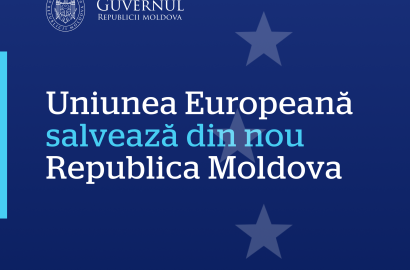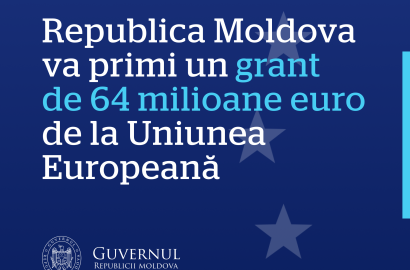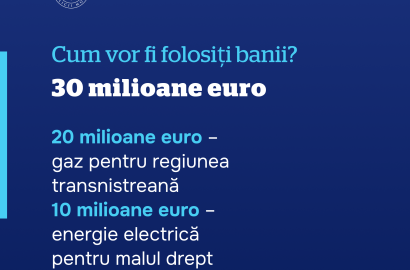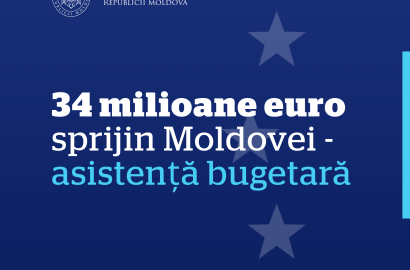European Union provides additional emergency support for country's energy security and public finance strengthening
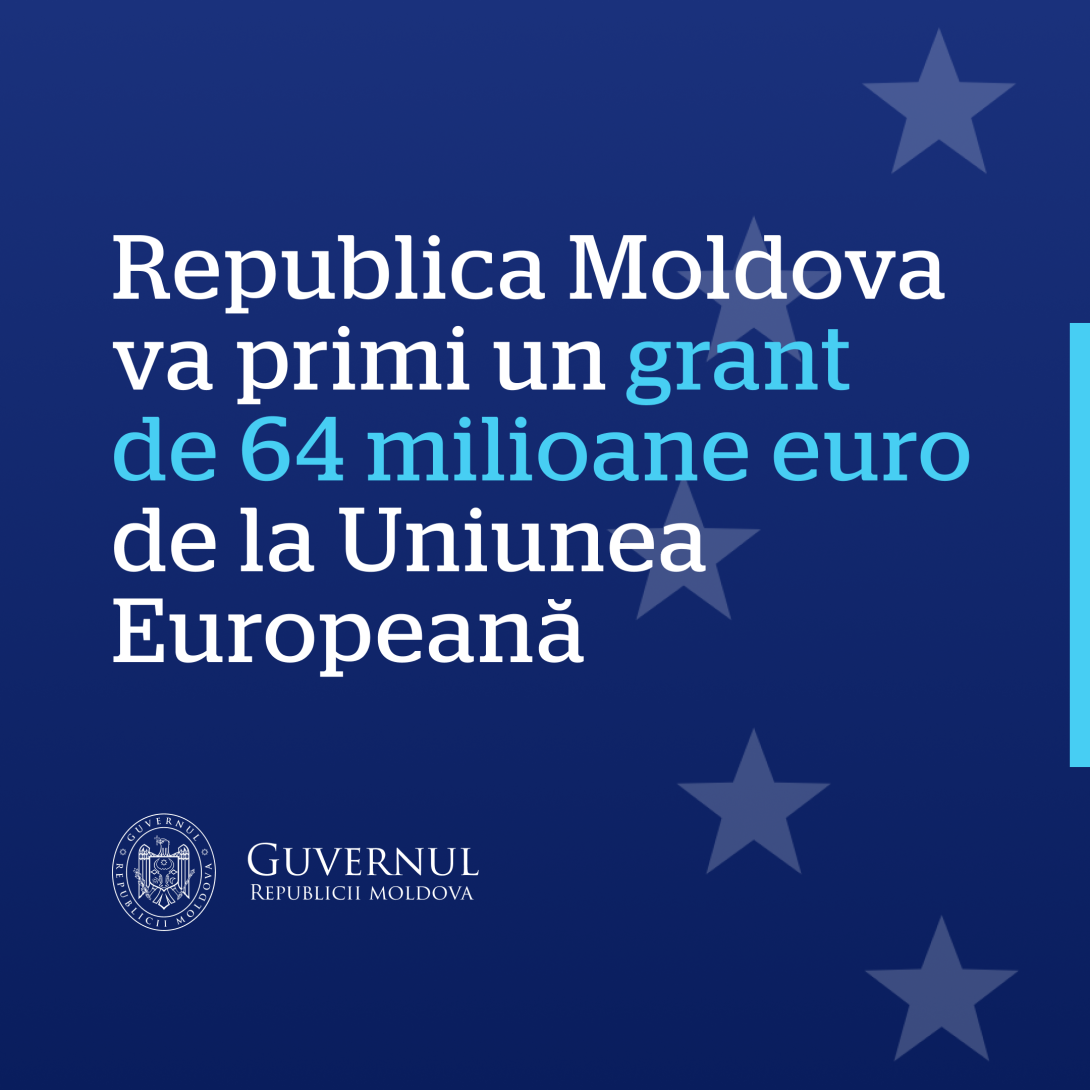
31 January 2025, Chișinău - The Government of the Republic of Moldova and the European Union will sign today a grant agreement worth 64 million euros, agreed between Chisinau authorities and Brussels officials.
From this sum, in addition to the 30 million euros dedicated to purchasing gas and electricity on both banks of the Dniester River, the Republic of Moldova will receive an additional 34 million euros for budget support. The money will be delivered in two installments.
The first installment, worth 30 million euros, will be distributed as follows:
- 20 million euros for the purchase of natural gas by Energocom as emergency humanitarian assistance intended for the Transnistrian region and designated for household consumers, schools, and social facilities. The gas purchased for the left bank of the Dniester will be used to produce thermal energy for residential blocks in the region and to maintain the operation of the MGRES/Cuciurgan Power Plant to ensure the region's energy security, including the transit of electricity between Romania, the Republic of Moldova and Ukraine.
- 10 million euros for the purchase of electricity to support the people and the needs of the right bank of the Dniester, which will be purchased by Energocom;
Details of the second installment of budget support will be announced later.
“The European Union saves the Republic of Moldova once again. This is what European solidarity means. While Russia leaves people in the cold and dark, Europe comes with money and concrete, direct support to finally put an end to this energy blackmail,” said Prime Minister Dorin Recean.
As of 1 January 2025, the Russian company Gazprom unjustifiably suspended the delivery of natural gas to Moldovagaz, even though there is a valid contract until 2026, leaving consumers in the Transnistrian region without natural gas and consequently without heat and hot water. At the same time, electricity is being disconnected by the hour because the MGRES/Cuciurgan Power Plant, which has switched to coal operation, cannot cover the electricity consumption required by the region.
To avoid a potential humanitarian crisis on the left bank of the Dniester, the Chisinau authorities have come up with several viable proposals for identifying alternatives for the delivery of natural gas to the Transnistrian region, which, however, have been rejected by Tiraspol. On January 27, the European Union made available to the Republic of Moldova an immediate support package for the safety of electricity deliveries in the immediate period on both banks of the Dniester, as well as to reduce tariff pressures on citizens. Currently, a dialogue is ongoing between energy experts on both banks of the Dniester to identify legal solutions for the supply of electricity and natural gas to the Transnistrian region, to make efficient and rational use of the financial support offered by the European Union.
